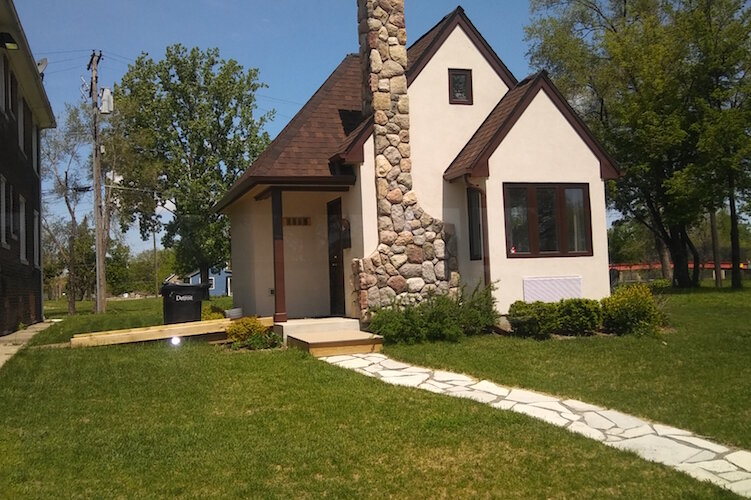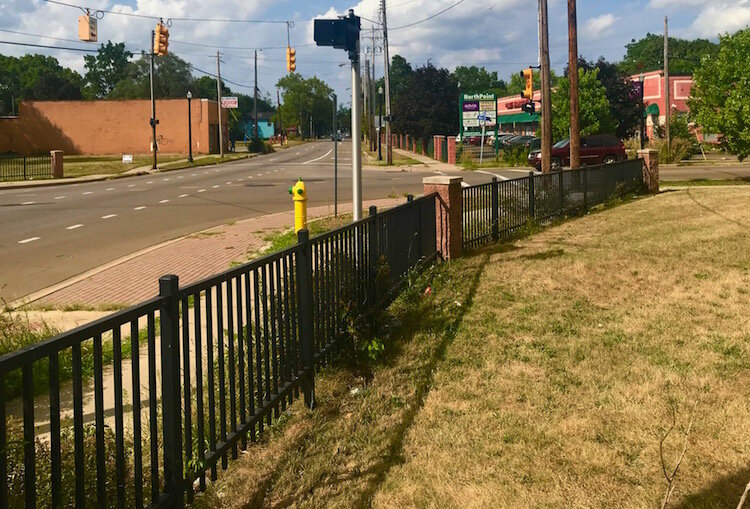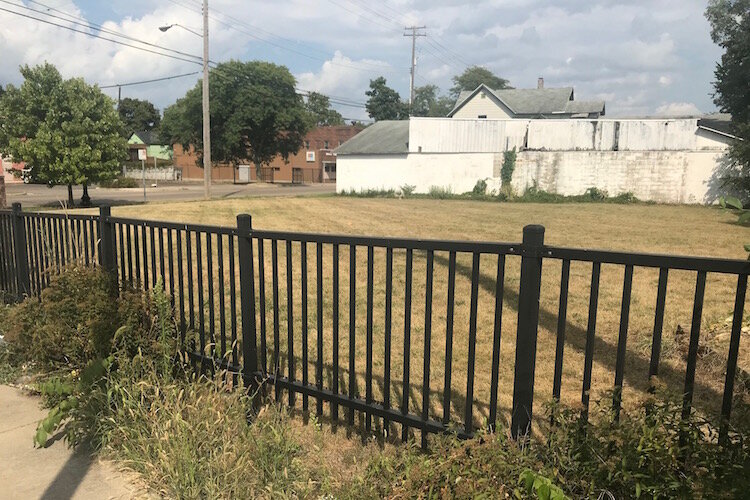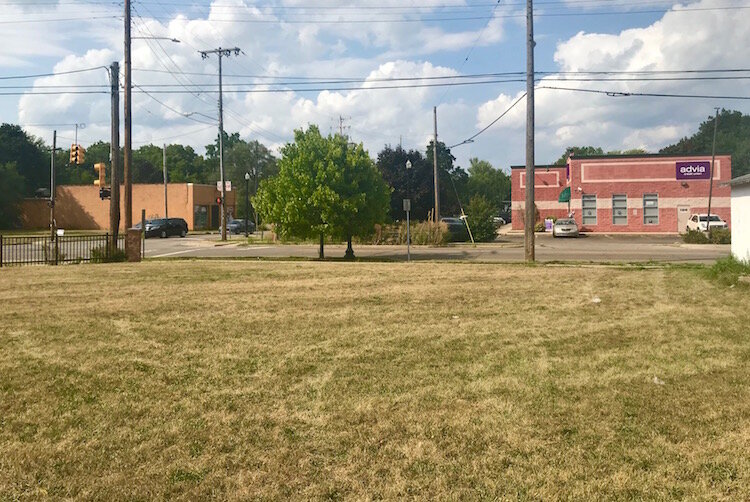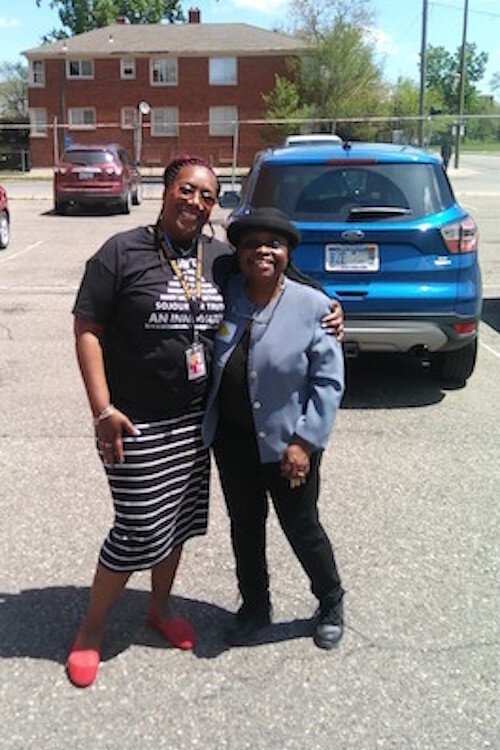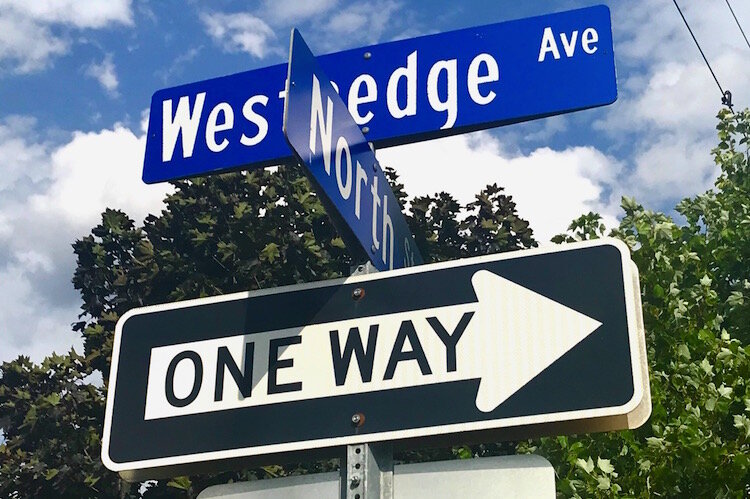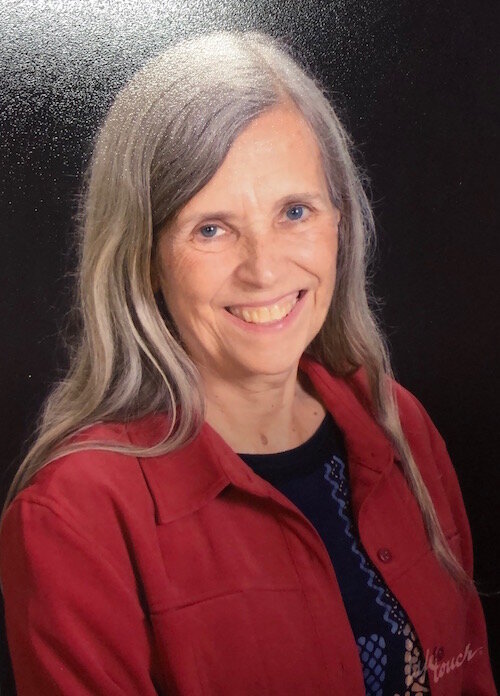‘Tiny’ houses are set to be a big deal in Kalamazoo’s Northside Neighborhood
Have you heard about the tiny house initiative? Real brick and mortar affordable housing for people who need it.
Editor’s note: This story is part of Southwest Michigan Second Wave’s On the Ground Northside series.
Tiny houses are coming to Kalamazoo’s Northside Neighborhood.
Delayed for more than seven months by state and local efforts to prevent the spread of COVID-19, ground is to be broken on Oct. 8 on three “tiny” houses — about 410 square feet each — by Helping Other People Exceed (H.O.P.E.) thru Navigation.
“The idea is to provide affordable housing for people to be able to work a minimum-wage job,” says Gwendolyn Hooker, chief executive officer of HOPE thru Navigation. “That’s $13 an hour or more. And they can actually make money, pay their bills, and still have money to do other things.”
Each of the first three houses will be a rental property available for about $400 per month (plus utilities) to individuals who have a history of incarceration or substance abuse. The mission of HOPE thru Navigation is to help people in those populations.
The $400,000 Tiny House Pilot Project is an endeavor funded by Kalamazoo’s Foundation for Excellence, LISC (Local Initiatives Support Corp.), Old National Bank, and private donors.
Information is being sent out to solicit bids for general contractors to oversee the construction of the houses on a parcel of unused land on the southeast corner of North Westnedge Avenue and North Street. That location will also include an office facility, tentatively set to be 1,200 square feet, to house the administration of other services that the organization provides.
“For it to be considered a tiny house, it can’t be any more than 500 square feet,” Hooker says. “Otherwise, it’s called a small house.”
But why so small?
“They’re affordable because they are tiny,” Hooker says. “They’re energy-efficient. To build these, they are $50,000 each. And with nice finishes, they’re more top-end than most people build.”
The project is a pilot program in which HOPE thru Navigation hopes to have a Phase 2 in which it builds three more tiny houses on a vacant parcel of land on the northwest corner of North Westnedge Avenue and North Street, kitty-corner to what her organization is set to do now. And she has expressed plans to see others built in other parts of the city.
“It’s very impressive because the tiny homes will provide lovely, architect-designed homes for single people who are denied housing everywhere else they go,” says Tobi Hanna-Davies, steering committee member for the Tiny Houses of HOPE Pilot Project and also co-chairperson of ISAAC & TRHT Housing Task Force. “The affordability is really good. Because they’re only 400 square feet, they’re much less expensive for people to rent or own and pay utilities.”
(ISAAC is the Interfaith Strategy for Advocacy and Action in the Community. TRHT Kalamazoo is Truth, Racial Healing and Transformation in Kalamazoo.)
The project is “providing housing for people who deserve to have decent housing,” says Mattie Jordan-Woods, executive director of the Northside Association for Community Development, the developer of the initial phase of the project. “… It’s another form of housing to address the need for people who have criminal backgrounds.”
Referring to the experience of individuals who have been incarcerated, Hooker says, “I chose to do the 410 square feet because I wanted it to be considerably larger than where they have been confined. Many prison cells are 10-by-10 feet. The tiny houses are considerably larger than what they are used to.”
“The other thing is that the design of the tiny houses, typically that we’re using, it’s open space,” Hooker says. “There are lots of windows and sun. It’s really, obviously a lot different than where these people have been detained in these small little boxes.”
HOPE thru Navigation got its start in 2015 and operates on an annual budget of about $82,000. It is funded by contributions from the Kalamazoo Community Foundation, the Sisters of St. Joseph, and private donations.
“We ‘navigate’ folks to jobs, to housing, to employment and other services,” Hooker says. These are known as “wrap-around” services and are typically designed to build a plan to address the basic needs of the person in the program.
The nonprofit’s staff includes a criminal justice navigator, an outreach coordinator, and Hooker, who also helps formerly incarcerated people and recovered substance abusers. The organization presently uses office space inside the 814 S. Westnedge Ave. location of the Vine Neighborhood Association and it has an office on the corner of North and Rose streets on the Northside. It will close the latter office after it builds a wrap-around services building as part of the tiny house project.
“And so our office would actually be on-site,” Hooker says, “to not only serve the community but to really provide those services to those folks who live in the tiny houses.”
Jordan-Woods says, “There are all types of housing that are needed. You’ve got family housing. You’ve got senior housing. We’re doing housing for kids that have aged out of foster care.”
Of the tiny houses, she says, “It’s just that next step of trying to put a variety of houses in a community so you can meet the needs of everyone.”
She says the need for affordable housing and good-paying jobs are two major barriers for people who are trying to pull themselves out of poverty.
Hooker says the tiny homes, using designs created by architect Marcus Johnson, of Fabrick Design in Detroit, would have been built this past spring if not for the coronavirus pandemic. “If not for COVID, those houses would be done. Our groundbreaking was March 30, originally. We’re running a little bit behind schedule only because of COVID.”
She now expects them to be completed by the Spring of 2021.
She says she does not expect to have enough houses for people who want or need them. “So it’s going to be about first come, first served,” she says. “The only criteria that we have is people have to be working. They have to have a criminal background and/or a substance abuse history (one year clean from drugs or alcohol) to qualify for the houses.”
Those interested may check the organization’s Facebook page here. They may also send an email to outreachofficeofhope@gmail.com or call the outreach office at 269-443-3073.
Jordan-Woods says she remembers hearing Hooker say, more than 18 months ago, that her dream was to provide housing for people, some of whom need only a small, affordable, quiet space to call their own.
“She said, ’One of the things I see as the No. 1 thing wrong is that people are still being made to pay for something they did 20 years ago,’” a reference to those who have been incarcerated.
Hanna-Davies, who is one of several local people to travel to the Detroit area in 2018 to see tiny homes there, says, “Home is fundamental to everything else we want to do. So many people need this kind of housing. I believe that once people see the tiny homes … they’ll be very happy to have more tiny homes built elsewhere.”
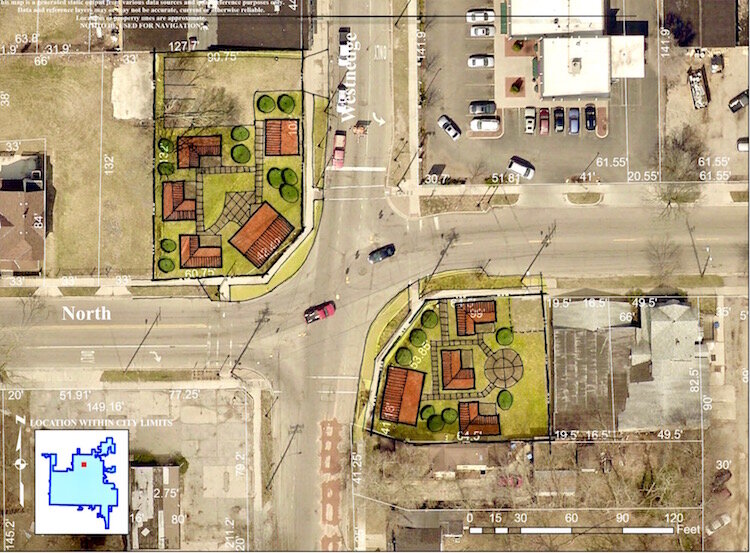
In this bird’s-eye-view rendering of the intersection of North Westnedge Avenue and North Street, the Tiny Houses of HOPE Project can be seen on the southeast corner of the intersection, towards the bottom right, of the image. It shows three tiny houses and a wraparound services facility on what is now vacant land. On the northwest corner of the intersection, shown towards the top left, are three additional tiny houses that the HOPE thru Navigation organization hopes to build in a second phase of development.

